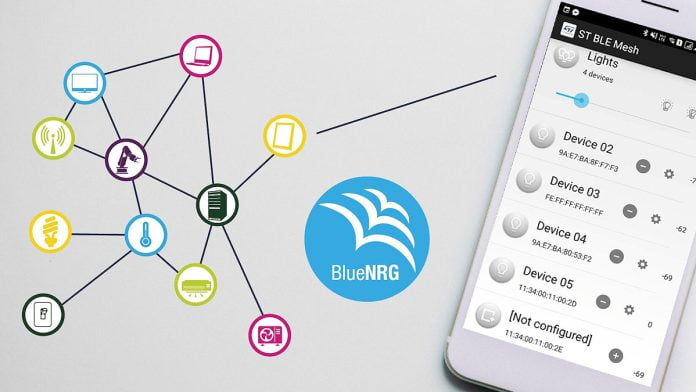Could Bluetooth Mesh Eat Alarms & Automation?
Could Bluetooth Mesh Eat Alarms – If there was one thing that was clear at Integrate & Security in Sydney, it was the increasing and evolving impact of consumer and industrial technology on security solutions.
When you consider the changing nature of the electronic security, growing power of controllers and sensors, and the leaning in of networking, it’s hard not to look at the wireless alarms industry as a technological laggard.
Its 433MHz comms, which are shared by simple, low security consumer systems like garage door openers and intercoms, are beginning to look more and more retro, in spite of worthy additions like frequency hopping, jamming detection and modest encryption.
Sure, 433MHz is not the only kid on the wireless alarms block. Zigbee is another useful path – ideal for short haul comms in residential and SME environments. Zigbee is more secure than 433MHz, has very low power draw and is easy to install. But neither of these solutions, nor anything else on the horizon, offers the potential – and the threat to the wireless status quo – of Bluetooth mesh.
It’s a mistake to think Bluetooth mesh is likely to roll-out far and wide tomorrow. But you’d be silly to ignore its potential to remake the landscape over the next 5 years or so.
Up front, Bluetooth mesh is designed for sensor comms, not for audio or video transmission. It’s more complex to build and maintain than 433MHz star config-type systems, which communicate between device and controller.

Regulated by the Bluetooth Special Interest Group as an open standard, Bluetooth mesh is a wireless networking standard built on Bluetooth Low Energy technology that allows many to many mesh communications at scale. Its use of beaconing means data can be transmitted much further – that’s useful on huge sites.
Bluetooth Mesh works on a flood network principle based on nodes relaying the messages. Messages have a time to live (TTL). Each time message is received and retransmitted, TTL is decremented which limits the number of hops to eliminate endless loops.
Could Bluetooth Mesh Eat Alarms & Automation
The way its mesh comms work is every relay node that receives a network packet that authenticates against a known network key that’s not in message cache, and that has a TTL = TTL – 2 can be retransmitted with TTL = TTL – 1, with caching used to prevent relaying messages recently seen. (Yes, we’re slightly confused, too).
Packets can carry messages of 384 bytes managed using segmentation and reassembly with any message of 11 bytes or less fitting into 1 segment. A message starts with an opcode, which may be a single byte, 2 bytes, or 3 bytes.
Messages incorporate a source and a destination address, which determines which devices process messages, while devices publish messages to destinations which can be single things, groups of things or everything.
Further, a message has a sequence number that protects from session replay attacks and each message is encrypted and authenticated. There are 2 keys used to secure messages – a network key allocated to a single mesh network, or application keys specific to an application functionality. For automation, that might be turning on a light vs reconfiguring a light.
Important, too, devices added to a Bluetooth mesh network are provisioned using proven security algorithms based on 256-bit elliptic curves and out-of-band authentication.
From the point of view of alarm and automation devices, the key thing is going to be that on large sites, where mesh networks justify their cost, Bluetooth mesh opens a door not only to network device manufacturers, it alters the relationship between device and controller in ways that have the potential to break existing industry business models.
You can find out more about Bluetooth mesh here and read more SEN news here.
“Could Bluetooth Mesh Eat Alarms & Automation?”











